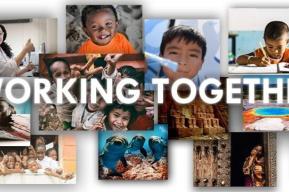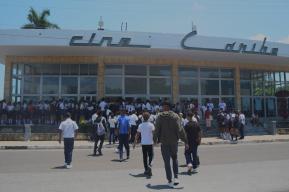Article
Webinar: Module evaluating distance learning as part of the HELA initiative
An expanded systemic understanding of curriculum can play a crucial role in helping to rethink education in the light of creating a "new normal." This involves revisiting the social imaginaries and ideals that underpin objectives, content, and modes of assessment, particularly distance learning.
Similarly, the curriculum should be adapted to ensure that education, learning, and assessment take place anywhere, anytime, to enhance, democratize, and improve learning opportunities, processes, participation, and outcomes for all learners.
Thus, revising assessment modes represents a window of opportunity to enhance its relevance and capacity to educate new generations. It is essential to review the objectives, content, and methods of distance assessment at all levels, in all contexts, and in all provisions, as well as to restructure and improve the assessment system based on the integration and complementarity between face-to-face and distance learning.
The assessment of prior learning in the education system attests to whether or not the target skills have been mastered and articulates those needed to produce world citizens. Yet the means of acquiring such skills are not universal, and all too often, modes of study assessment have been inappropriately developed from the outside and imposed on other cultural realities, as in Africa, creating troubling disconnects between what needs to be learned and acquired and the learners.
Learning assessment is essential in the holistic curriculum for students and teachers. Students often think that assessments are not always adapted to the lessons they receive, and even more so for distance learning. When addressing the issue of distance assessment, curriculum designers are frequently confronted with questions such as: how can we meet society's new demands by ensuring an assessment system that measures learner competencies; how can we ensure the breadth and depth of distance assessments that are both achievable within the time allocated in a curriculum; and also, how can we have a curriculum that is flexible enough to allow for quality distance assessment?
With this in mind, the webinar organized on Tuesday, February 27, by UNESCO-IBE and funded by Germany presented the ways and means identified to guide countries towards more effective online assessments, meeting the expectations of the future within a logic of regional harmonization and thus making education systems more resilient to future disruptions.
Based on a regional study covering some twenty countries in West and Central Africa, a module on distance learning assessment was presented by various UNESCO-IBE experts, prompting enriching exchanges with participants. The webinar achieved the following results:
- a better understanding of assessment and its place in the curriculum in general and in distance learning in particular;
- a detailed explanation of the different options for distance assessment;
- an understanding of the role of the teacher and the learner in the system; and
- and consideration of participants' recommendations.










